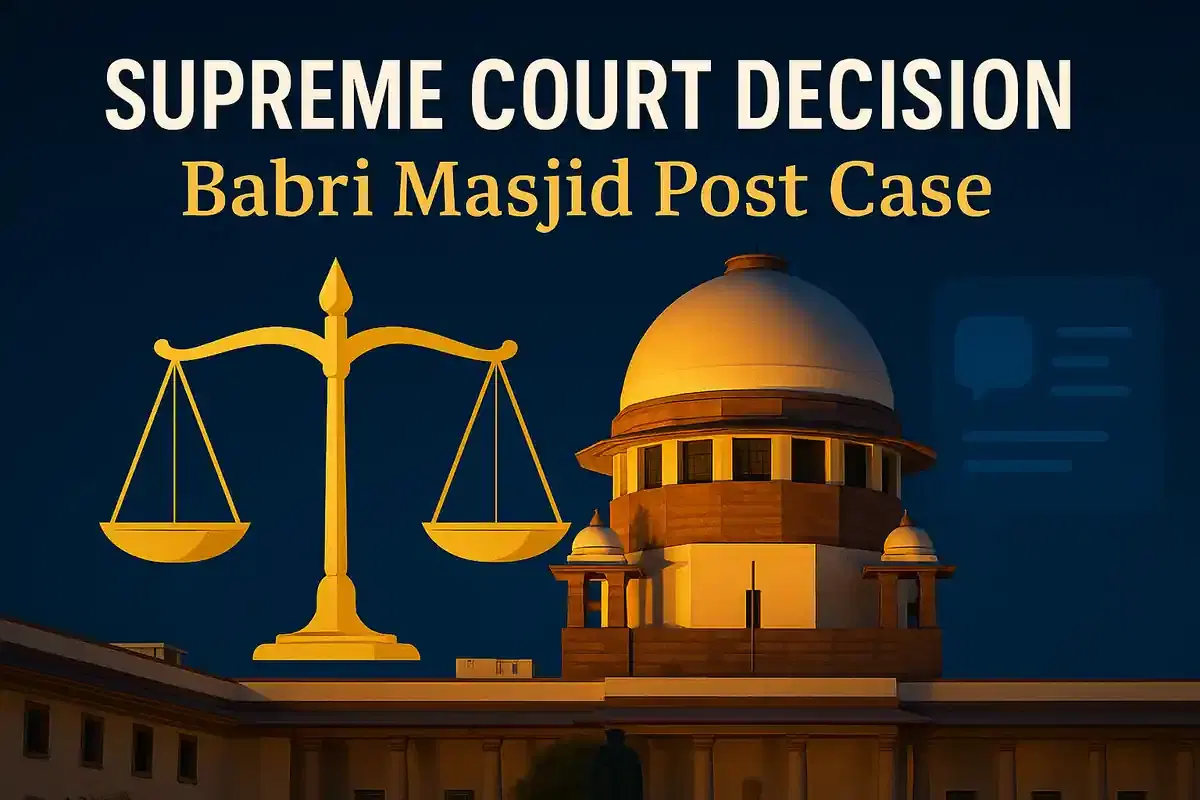Supreme Court Declines Plea to Quash Criminal Case Over Babri Masjid Rebuilding Post
Law/Court
|
28th October 2025, 9:47 AM

▶
Short Description :
Detailed Coverage :
The Supreme Court of India, comprising Justices Surya Kant and Joymalya Bagchi, has declined to entertain a plea seeking to quash criminal proceedings against Mohd. Faiyyaz Mansuri. The case stems from a Facebook post made by Mansuri on August 5, 2020, which stated, "Babri Masjid too will one day be rebuilt, just as the Sofian Mosque in Turkey was rebuilt." The petitioner argued that his post was a mere expression of opinion protected under Article 19(1)(a) of the Constitution and lacked vulgarity, claiming that objectionable comments were made by others and wrongly attributed to him. He also highlighted that he had previously been detained under the National Security Act for over a year based on the same post, a detention later quashed by the Allahabad High Court.
**Impact**: The Supreme Court's decision reinforces that individuals can still face legal scrutiny for social media posts, even if framed as an opinion, especially concerning sensitive historical and religious matters. It emphasizes that the trial court is the appropriate forum to hear defenses and examine evidence regarding the nature of the post and intent. This ruling may serve as a cautionary note for social media users, suggesting that freedom of speech is not absolute and can be tested against existing laws concerning public order and religious harmony. The court's direct observation of the post and its refusal to interfere at this stage signals a strong inclination to allow due process to take its course.
**Difficult terms**: * **Quash**: To officially end or set aside a legal proceeding or court order. * **Plea**: A formal request made to a court for a specific ruling or action. * **First Information Report (FIR)**: The first document filed by police when they receive information about the commission of a cognizable offence. * **Trial Court**: The court of first instance where a legal case is heard and decided. * **Preventive Detention**: The act of detaining a person without trial to prevent them from committing future offences. * **Article 19(1)(a)**: A part of the Indian Constitution that guarantees freedom of speech and expression to all citizens. * **National Security Act (NSA)**: A law that allows the government to detain a person without trial if it is deemed necessary to prevent them from acting in any manner prejudicial to the security of India or maintenance of public order.